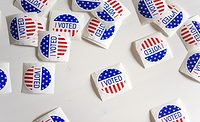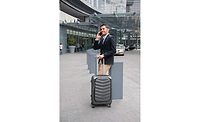Airport screening procedures to stop the spread of infectious diseases miss half to three-quarters of infected travelers who make it to their destinations, according to a new university study.
The study, authored by UCLA researchers and published last month in the peer-reviewed scientific journal Elife, comes shortly after a measles outbreak and an Ebola scare put more Americans on high alert about the spread of infectious diseases. The study analyzed airport screenings for six viruses including SARS, Ebola and H1N1, the so-called swine flu virus.
One key reason that the detection rate is so low, the study suggested, is that many travelers are not honest about their exposure to diseases. In most cases, health authorities rely on questionnaires to try to detect infected travelers. During the Ebola scare, infrared thermometers were also deployed to identify passengers with fevers arriving from select African countries.
"We found that for diseases with a long incubation period, such as Marburg and Ebola, taking passengers' temperature to test for fever is particularly ineffective at the start of an epidemic but does pick up more cases as the epidemic stabilizes," said Katelyn Gostic, a lead author of the study and a UCLA doctoral student. "With diseases such as swine flu, which take a shorter time to incubate, fever screening is the most effective method throughout an epidemic."
Currently, traveler questionnaires are one of the tools screeners use -- asking passengers, for example, whether they have been in contact with an infected individual (in the case of Ebola) or have handled live poultry (for viruses like avian influenza). The researchers write that screeners could more effectively identify sick passengers if those who create those questionnaires understand the risk factors for each disease, which would help them to better tailor the surveys.
The researchers found that no more than 25 percent of passengers answered honestly about whether they had been exposed to influenza during the 2009 pandemic, and that some may have hidden their symptoms by taking medication.
"Anyone who reports honestly puts himself or herself at risk of delay or detainment; this is a terrible incentive for truthful reporting," Gostic said. "A high number of people use over-the-counter drugs like acetaminophen that conceal fevers and can make their symptoms undetectable, which is likely an overlooked problem."
Lloyd-Smith, a UCLA associate professor of ecology and evolutionary biology and senior author of the research, said current screening programs can reduce the rate of importing infections, but nowhere close to zero. "Even under the best-case scenarios we considered, arrival screening missed at least half of infected travelers for all pathogens," he said. "Traveler screening by these methods is inherently leaky."
Read more: http://elifesciences.org/content/4/e05564






